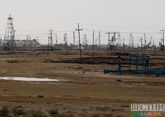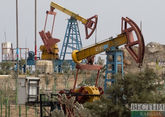In just over a year Venezuela has gone from being one of the world’s hottest news headlines to obscurity. The popularity of Venezuelan opposition leader Juan Guaidó is waning. As the December 2020 election date for Venezuela’s National Assembly fast approaches it appears that Washington’s opportunity to initiate regime change in the Latin American state is steadily slipping away, Oil Price writes in the article Russia Is Winning The Battle For Venezuela’s Oil.
The Latin American country possesses the world’s largest hydrocarbon reserves, estimated to total over 300 billion barrels or 12% higher than Saudi Arabia’s. Venezuela was once an important source of heavy crude oil for U.S. refineries with many, notably in the U.S. Midwest, being configured to process crude oil with an API of less than 40 degrees.
A combination of deteriorating infrastructure and a substantial lack of investment in critical maintenance and development activities caused Venezuela’s oil industry to collapse. Over the last decade, Venezuela’s oil production has tumbled precipitously to be less than a sixth of the 2.3 million barrels daily pumped during 2009. According to OPEC’s August 2020 Monthly Oil Market Report, Venezuela’s oil output had fallen to an average of 339,000 barrels daily during July, or less than half of the daily average for 2019.
The collapse of the Latin American country’s economically vital hydrocarbon sector has caused the economy to essentially collapse. During 2019 Venezuela’s GDP contracted by 35%, according to the IMF, and is forecast to shrink 15% in 2020 and by another 5% for 2021. As a result, what was the most advanced country in Latin America is now one of the region’s poorest. It has seen Caracas, once regarded as the jewel of South America, fall on hard times and lose its status as the continent’s mecca for oil executives, businessmen and tourists.
Venezuela’s economic woes will worsen because oil production remains in decline. Even the government’s efforts, with considerable support from Russia, have failed to tangibly boost petroleum output with July average daily production of 339,000 barrels less than 1% greater than a month earlier. By the end of July 2020, Baker Hughes data showed there was only one active oil rig in the Latin American country, compared to 25 for the equivalent period a year earlier.
The economic dependence on oil will force the Maduro administration to seek further support from key ally Russia, particularly because formidable U.S. sanctions prevent Caracas from tapping mainstream international capital markets and selling crude abroad. Moscow has a long history of supporting Venezuela’s dictatorship, supplying arms, loans and now mercenaries to prop up its erstwhile South American ally since Chavez’s ascension to power. It also facilitates the sale of Venezuelan crude, allowing Maduro’s administration to skirt U.S. sanctions. China has become a key recipient of Venezuelan oil despite U.S. sanctions. Those sales were being expedited by Russian state-controlled oil giant Rosneft, which had lent over $6 billion to Caracas to be repaid in oil with around $800 million remaining to be paid according to some estimates.
The U.S. imposed sanctions on Rosneft but indicated that they would be lifted if the company were no longer involved in Venezuela. This saw Rosneft sell its Venezuelan assets earlier this year to a Russian government owned company to protect its shareholders. This underscores the closeness of the relationship between Caracas and Moscow. The alliance between the two countries will become stronger because of Washington tabling further sanctions in the wake of seizing Iranian fuel cargoes en route to Venezuela earlier this month. The Trump administration is also determined to choke off Caracas’ oil sales, the government’s only source of hard currency.
This relationship and its growing intimacy, gives Russia notable geopolitical benefits, including increased leverage in what has traditionally been considered the U.S.’s exclusive sphere of influence and control over the world’s largest oil reserves. Recent developments in Venezuela indicate that the bond will become even closer.
Venezuela’s December 2020 National Assembly elections are fast approaching. This is an important event for Washington and its attempts to secure regime change in Venezuela, blunt regional Russian influence and dominate the Latin American country’s vast oil wealth. The parliamentary body, where the opposition to Maduros’ holds a majority, endows opposition leader Juan Guaidó with his legitimacy. At the start of 2019, Guaidó declared himself Venezuela’s interim president and was backed by the U.S., Canada and many Latin American countries. Eventually, more than 50 countries around the world recognized the opposition leader as Venezuela’s legitimate leader by the end of 2019. That support, however, is evaporating domestically and internationally.
Guaidó’s failure to deliver on the many promises made during early 2019 has seen many Venezuelans who initially supported him become disillusioned with the self-declared intermediate president. His popularity is declining further as the ever-deepening economic crisis forces Venezuelans to set aside politics and focus on managing day to day problems just to survive. A 2019 poll showed that Guaidó’s popularity had waned and he was in a statistical dead heat with Maduro. Guaidò’s support spiraled even lower after his alleged involvement in the abortive May 2020 armed raid on Venezuela, where two former U.S. special forces soldiers were captured. This along with Trump flip flopping on Venezuela in recent months and the growing pressures on ordinary Venezuelans because of the economic impact of harsher U.S. sanctions.
Washington appears to have lost the ability to spark regime change in Venezuela. Harsher sanctions and the Latin American country’s growing forced austerity has seen a hard-pressed Maduro seek closer ties with Russia, giving Moscow ever greater control of Venezuela’s vast oil reserves and potential productive capacity. This not only boosts Russian geopolitical standing but gives Moscow greater ability to influence oil prices by increasing its bargaining power with OPEC, with which Russia has partnered since 2016 in a series of petroleum production cuts to bolster prices.










